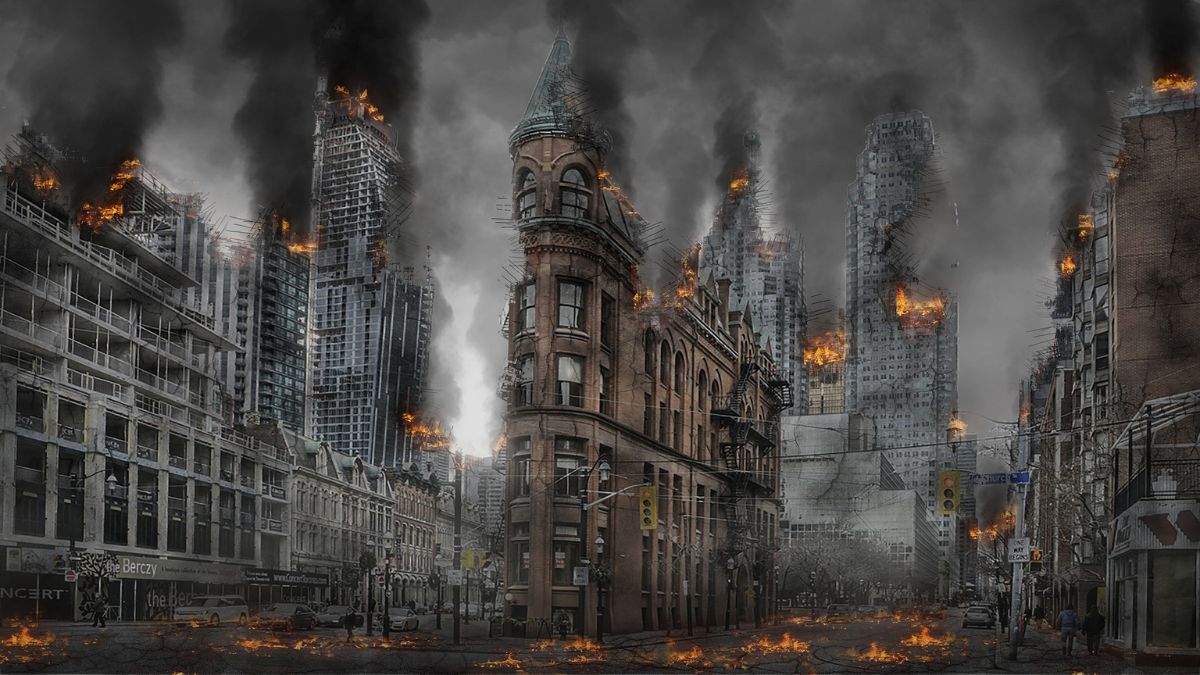“Zombie” is a passionate protest song that speaks out against war and harming innocents. The Cranberries intended the song to discuss a specific historical conflict, but it is also a universal comment about the mindlessness of war. The point of the song is to force everyone to look at the costs of conflict and imagine themselves suffering the losses personally.
Dolores O’Riordan wrote the song after a 1993 IRA bombing in Warrington, which killed two innocent children. The bombing occurred when she was on tour, and she describes being rapidly inspired to write a song in response to the event. Once she had the hook, the rest came very quickly.
In this article, we’ll take a look at these emotionally charged lyrics to reveal their hidden meaning. We’ll also try and explain how the song’s theme is always relevant and the songwriting story. Let’s dive in!
“Zombie” Lyrics Meaning
The song begins by launching the listener into a tragic scene. A child has been “slowly taken,” and “another head hangs lowly.” We’re seeing the grief of a dead child’s family. O’Riordan doesn’t react indifferently but instead describes the “silence” the event has caused. In other words, everyone is being solemn and respectful.
This is a direct reference to the deaths of Tim Parry and Johnathan Ball. These two were children killed during the IRA bombing of Warrington in 1993. O’Riordan once described being “devastated about the innocent children” after the event, inspiring her to write the song.
Next, O’Riordan begins describing how people turn off their sympathy for the victims. They say, “it’s not me; it’s not my family,” and move on. O’Riordan is furious about that hard-heartedness and reminds the listener that “in your head, they are fighting” and “crying.”
The IRA’s conflict with England historically matches the description O’Riordan gives. This is no surprise since she lived through it and has Irish heritage. With “their bombs and their guns,” both sides killed one another. O’Riordan wants us to look at the innocents caught in the crossfire.
If we refuse to have empathy for them, O’Riordan calls us a “zombie.” Simply put, nobody with a beating heart should be able to look at this pain without caring. This is why “Zombie” is indeed a protest song. It calls for the end of the conflict that’s caused so much destruction.
That’s why the chorus is so repetitive. O’Riordan asks the listener, “what’s in your head” on a loop and labels the uncaring as zombies. It’s an image that makes us think of morbidity and mindlessness. Those are the characteristics of war lovers and the characteristics of war.
In the second verse, O’Riordan gets more specific. She shows us “another mother’s breaking heart” instead of the child’s general family. The goal of pointing out the mother is to make the event even more emotional. If this grief is happening, “we must be mistaken” in some way to let it continue.
It should be noted that, although the song condemns the actions of the IRA, “Zombie” never weighs in on who is technically right. It isn’t anti-IRA or pro-IRA in that sense. Instead, the goal is to appeal to all sides and ask them to end the cycle of violence. It points a finger of judgment at the IRA but doesn’t discuss the underlying causes of the struggle.
In the next pre-chorus, O’Riordan drops an intelligent reference. She says, “It’s the same old theme since 1916” to recall the beginning of the 20th-century Irish-English conflict. The origins can be traced back to The Easter Rising, which was the first armed conflict of the Irish Republican revolution. It happened in April 1916.
After that line, the song repeats the chorus until the end. These powerful lyrics, as well as the brilliant performance, hit like a truck. O’Riordan’s very Irish vocal performance shows that she is not ashamed of her heritage, which makes her message more powerful.
To sum up, “Zombie” puts us face-to-face with the true cost of war. It asks all listeners to reflect on the darkness and senselessness of war and calls for peace. This is a perspective that can be applied throughout human history, including today.
The Story Behind “Zombie”
Before the creation of “Zombie,” The Cranberries were already a successful and popular group. As a result, they were regularly on tour in many locations. It was during one of these tours that the 1993 Warrington bombing occurred. This event shook Dolores O’Riordan deeply, which inspired the track.
O’Riordan explained that since she was “near the location where it happened, it really struck me [O’Riordan] hard.” The rest of the process was very rapid, and the song was released in September 1994.
O’Riordan described the songwriting process as “subconscious.” Once she’d returned to her home in Ireland, she began to put lyrics to the chords she already had. After the hook and chorus were done, the verses came “quite easily,” and the track was completed.
This speed came in handy since The Cranberries used “Zombie” as a teaser for their upcoming album. In fact, “Zombie” was released two weeks before the album and successfully hyped it up.
Not only was the album a success, but “Zombie” ended up changing the world. The track dominated charts all over Europe and the US and has had a fantastic critical reception. Perhaps more importantly, Colin Parry (father of one of the slain Warrington children) directly praised the song as “majestic and also very real.”
O’Riordan’s openness to the tragedy she saw created one of the greatest pieces of 20th-century music. While the musicianship is amazing, the message in the lyrics is certainly the most admirable part of this song’s story.

